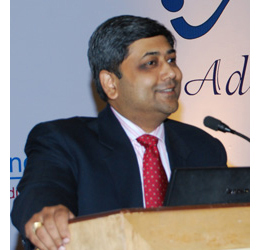|
Editor's note

Speculation is high that SEBI will, in its Board meeting scheduled for June 17th, take some decisions on reducing expense ratios for mutual funds. SEBI Chairman has been quite vocal in recent times, about his opinion that expense ratios in India are too high - way higher than international averages - and therefore, there is a strong case to bring these down.
This perception has perhaps in part been fueled by a report last year by Morningstar, which compared mutual fund costs across 25 countries and concluded that India and Canada were among the costliest. FIFA has produced a very incisive analysis which rebuts some of the conclusions of this report, and which establishes that if you were to consider total cost of ownership of mutual funds in various countries, India actually ranks among the cheapest and not the costliest in the world. The report correctly points out that you cannot compare unbundled costs with bundled costs and come to conclusions - its like saying we take direct plans from country A, compare them with regular plans of country B, and then conclude that B is more expensive than A.
SEBI unfortunately does not reveal the sources of information from where they form a view on various matters, including this view that Indian expense ratios are very high. In a recent RTI that an IFA had filed with SEBI on another matter, SEBI responded that it is not obliged under RTI to share reports, surveys or discussion papers on the basis of which it comes to conclusions, which then form the basis for regulations. So, we really don't know exactly how SEBI has concluded that Indian mutual fund expense ratios are very high. If they are being influenced by the Morningstar report, we would urge that FIFA's report be studied closely, and a well balanced view be taken only after this.
On a separate note, it is indeed a matter of great regret that an IFA association is doing what is essentially AMFI's job. At our annual conference last year, the Canadian trade body's CEO spoke of how they (the AMFI equivalent of Canada) had produced an exhaustive report rebutting Morningstar's conclusions, and had ensured wide dissemination of this report among all stakeholders in the country, to ensure that decisions are taken on the basis of proper facts. It's a year since the Morningstar report has been issued, but we haven't seen any official report from AMFI setting the record straight, and no visible attempt at publicizing its own findings. And all this, when the regulator has been pretty vocal on an opinion that costs in India are too high.
FIFA has done a great job with this report. It has taken 3 of Mumbai's leading IFAs many days and hours of painstaking effort and research over more than a month to compile this report - time that they could well have devoted to their own businesses. A question that really needs to be answered is this: why didn't AMFI do this - and do this much earlier? Why have we allowed perceptions to build for so long, without challenging assumptions and rebutting conclusions - to a point where a decision is probably just round the corner, on the basis of a perception that may be quite removed from facts? Why is AMFI unable to appreciate that industry advocacy is its primary job?
Vijay Venkatram, Managing Director, Wealth Forum
|